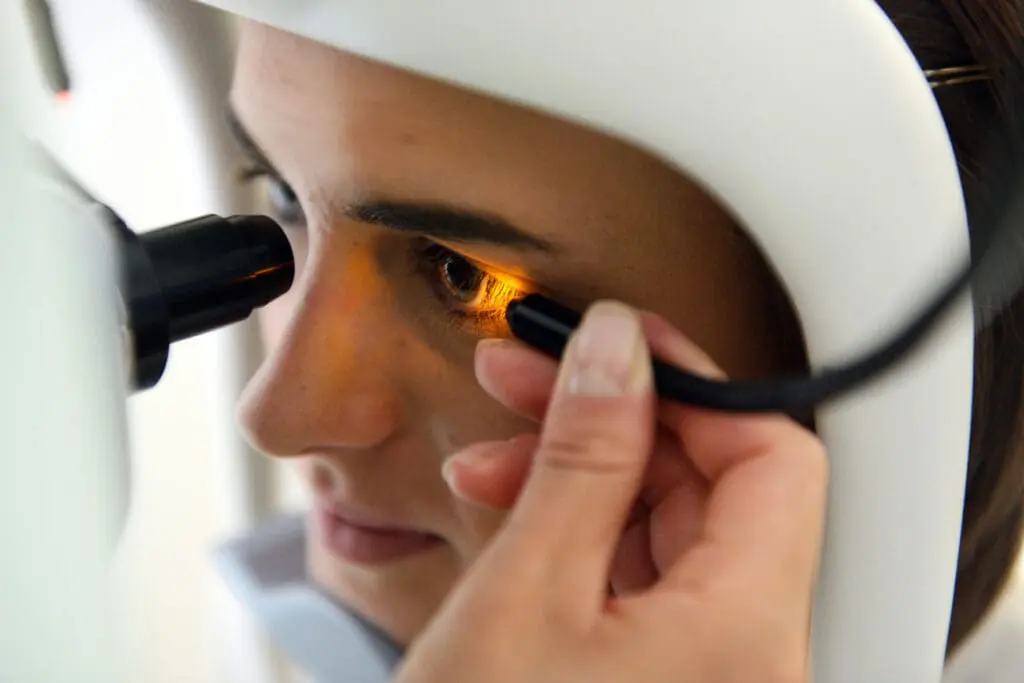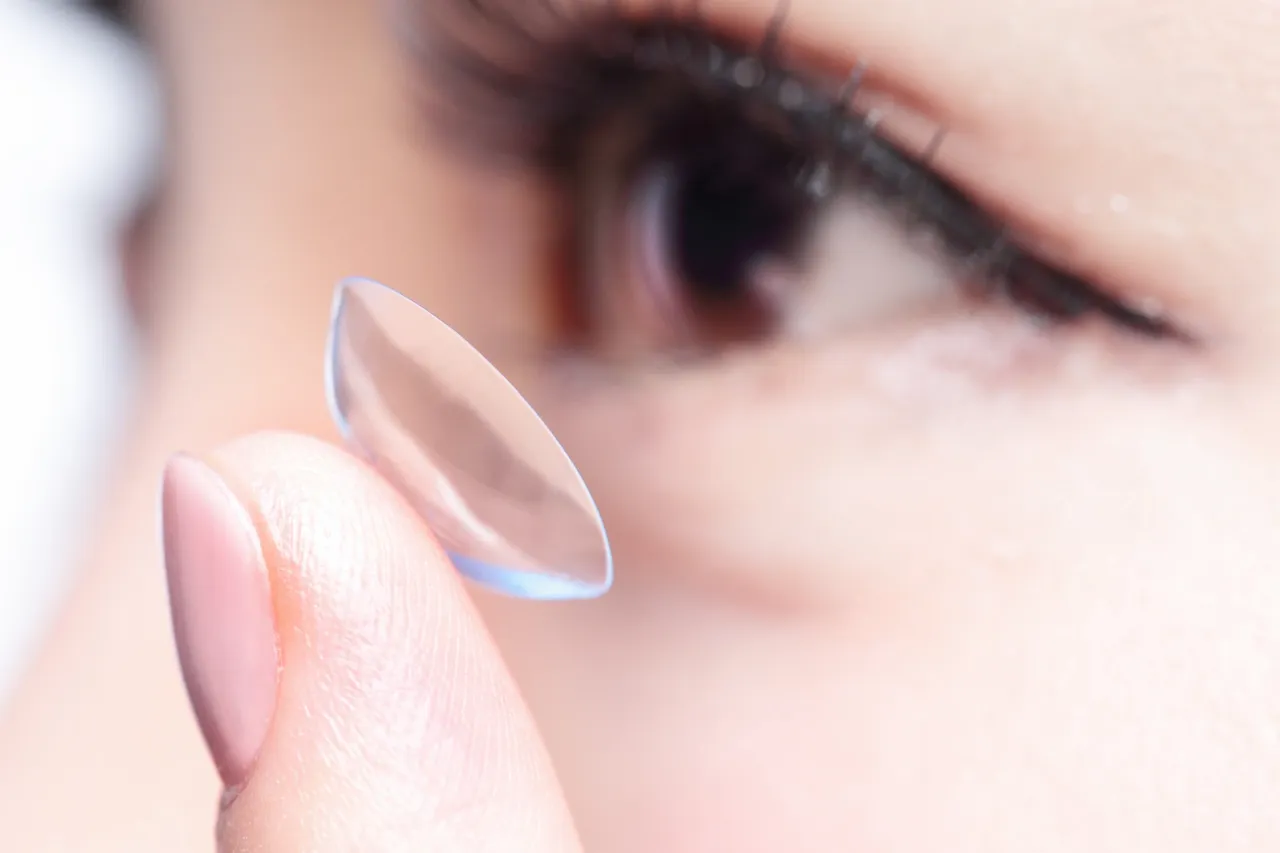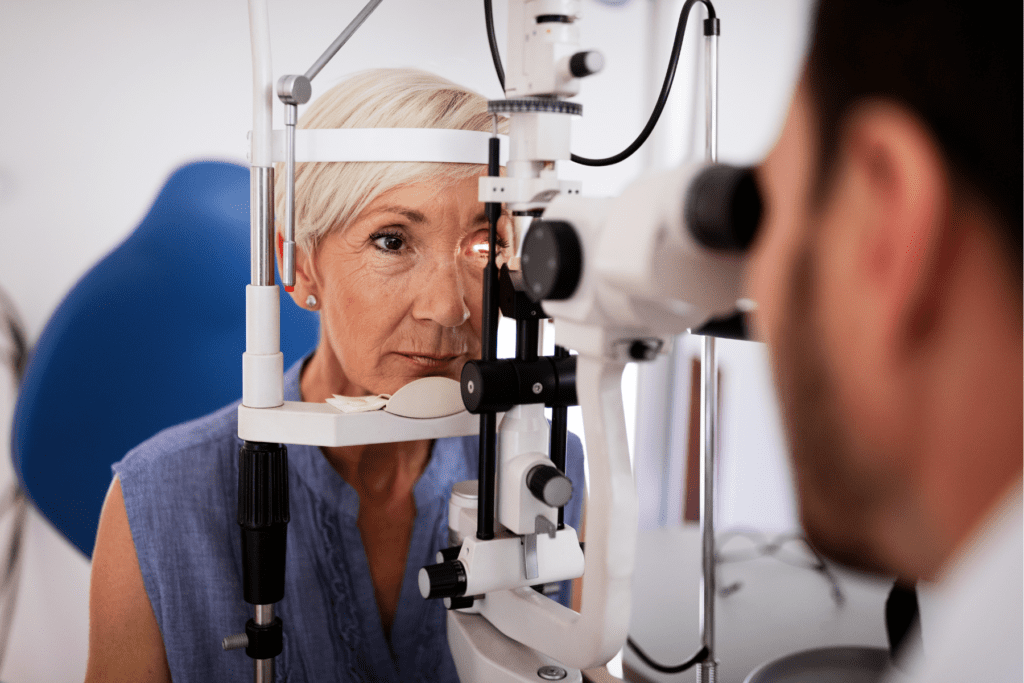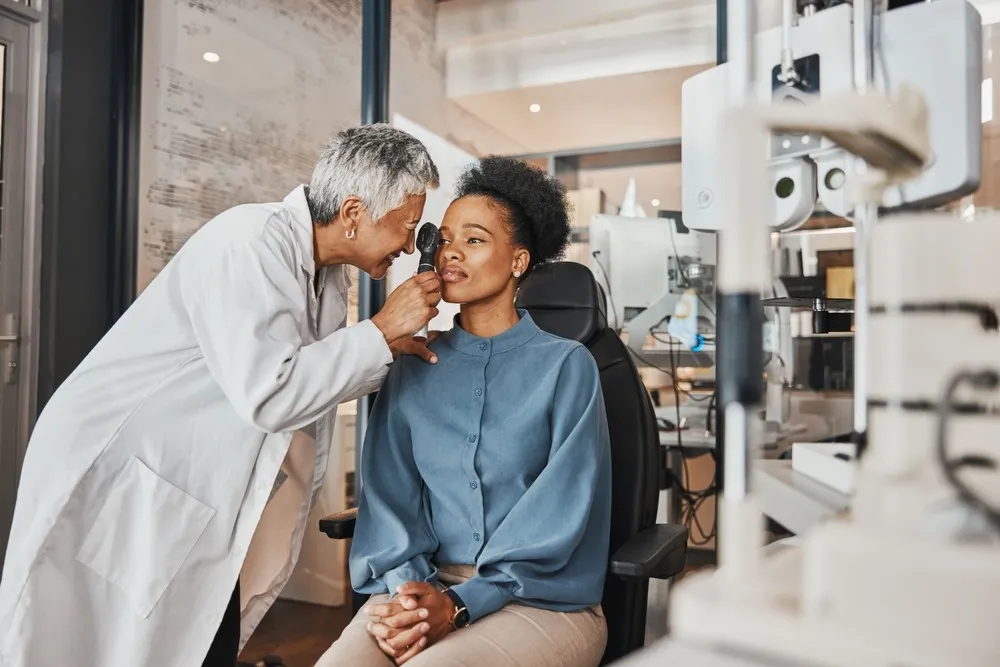Clear vision goes beyond having the right prescription; it encompasses how your brain and eyes work together to process what you see. Neuro-optometric care focuses on this fundamental connection, offering specialized treatments that enhance visual performance, comfort, and overall well-being. Neuro-vision treatments can help retrain and strengthen your visual system for better sight.
Neuro-optometric Vision Rehabilitation
Neuro-optometric vision rehabilitation is a personalized treatment program designed to address visual problems that result from neurological conditions. These conditions include traumatic brain injuries (TBIs) or neurodegenerative diseases. A neuro-optometrist, also known as a neuro-vision doctor, evaluates how the brain processes information from the eyes and creates a plan to improve visual skills.
The goal of this therapy is to retrain the connection between the eyes and the brain. It helps patients recover lost visual abilities and develop new ways to process visual information. This approach is beneficial for enhancing overall function and well-being following a neurological event.
Vision Therapy and Brain Integration
A fundamental part of neuro-optometric treatment is vision therapy. This involves a series of exercises designed to improve the coordination between the eyes and the brain. These exercises are tailored to each patient’s specific needs and may focus on improving eye movements, focusing abilities, and visual processing speed.
A neuro-optometric specialist utilizes specific tools and techniques to help the brain reprocess visual information accurately. Therapeutic lenses and prisms can be used to alter how light enters the eyes, which helps the brain process images effectively. These exercises and tools work together to strengthen the neural pathways responsible for vision.
Diagnosis and Treatment Technologies
Neuro-optometric care uses advanced technology to diagnose and treat visual disorders. A neuro-vision doctor will conduct a comprehensive evaluation to identify the specific visual problems a patient is experiencing. Once a diagnosis is made, the neuro-optometrist uses various tools to guide treatment. These tools can include specialized computer programs that provide real-time feedback during vision exercises. Prism eyeglasses are another helpful resource used to correct eye misalignments.
Candidates for Neuro-optometric Care
Neuro-optometric treatment can be beneficial for several individuals experiencing visual and neurological challenges. Here are some common groups who can benefit from this specialized care:
- Individuals with traumatic brain injury (TBI), including those recovering from concussions or severe head injuries.
- Stroke survivors experiencing visual field deficits or difficulties with eye coordination.
- Patients with neurological conditions that can impact visual processing.
- People with developmental or learning disorders, including children and adults with conditions such as dyslexia.
- Athletes recovering from sports-related injuries, especially concussions that have disrupted vision or coordination.
- Elderly individuals with aging or neurodegenerative conditions that are causing a decline in visual function.
These groups can experience improved well-being and function through targeted neuro-optometric therapies designed to address their specific needs.
Book a Neuro-Optometric Evaluation Today
Neuro-optometric rehabilitation provides a pathway to enhanced vision for individuals with neurological conditions. A neuro-optometric specialist can help restore visual function and reduce related symptoms. If you or a loved one is experiencing vision problems after an injury or illness, a comprehensive evaluation is a key step toward recovery. Contact an eye practice near you to book an appointment with a neuro-optometric specialist.
Social Sharing
Your Content Goes Here
Latest Posts





